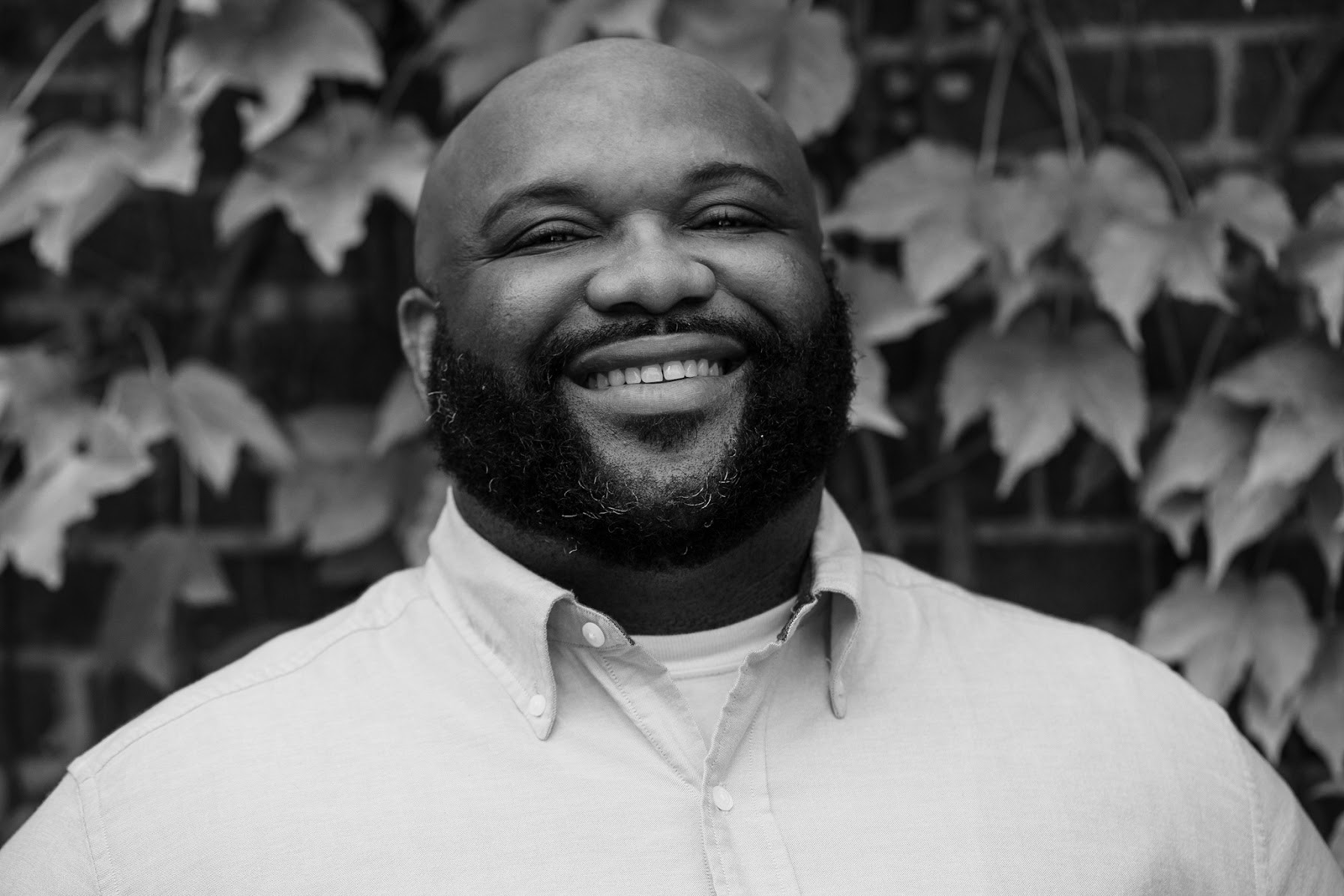Reflecting on the ongoing struggle for racial justice: a Juneteenth interview with financial advocate Stephone Coward II

In honor of Juneteenth, we are proud to feature an interview with Stephone Coward II, Economic Justice Director at the Hip Hop Caucus and a financial advocate dedicated to making banking more racially equitable. Juneteenth commemorates the emancipation of enslaved African Americans and serves as a powerful reminder of the ongoing struggle for racial justice and economic liberation. Financial institutions play a critical role in this liberation agenda, as equitable access to financial services can significantly empower Black communities and ultimately help to close the racial wealth gap. Join us as we delve into Stephone’s journey, insights, and the impactful work being done to create a more inclusive financial landscape.
Can you share your personal journey and what motivated you to work towards racial equity in the banking industry?
SC: Well, back in my day when we had to walk 15 miles in the snow to make sure the bank opened on time… No, I am just kidding. I say that because I think about how I have been working in the banking industry for the last 20 years and even though that is two decades, I can remember it like yesterday. Funny story is that I got my start in the banking industry because I could not bear another day of working in the lumber yard after my first semester home from college. It had to be the hottest Texas summer on record at that point. I started at a local bank that allowed me to transfer back to the University of Texas at Arlington, where I could work and go to school full-time. I stayed because I found that I had a knack for sales and talking to people. I was really good at getting people to move their money, and that began my journey of using financial tools to help people.
I was always someone who wanted to go out to serve the community, and back then, banks would do that by going into communities to teach financial literacy; that is when I began to become more conscious of how the financial and banking industry contributed to racial inequity. For starters, as we started to get deeper into this digital age I saw that financial literacy curriculums did not evolve with the times. We were still talking to people about how to balance checkbooks. I learned that banks go into low and moderate-income communities, which they refer to as LMI communities, to stay compliant with the Community Reinvestment Act, which requires institutions to meet the credit needs of the communities they serve. The lack of thoughtfulness on how to do so made me realize that this was nothing more than a checkmark to allow them to continue to operate. That thought crystallized for me in 2015 when we began to see the murder of Black and Brown people at the hands of law enforcement officers, and as a response, people used economic power to make their voices heard, including me.
I have witnessed why the system needs to be changed for good. We must live life and do business in a way that upholds the ability of the next generation to do the same. The side of the highway one lives on should never determine one’s access to capital. We need to put better protections in place to prevent predatory and discriminatory practices. It is expensive to be poor, and that’s unjust. I have also experienced financial insecurity and economic inequality, so I have made it my purpose to leverage what I have learned personally and professionally to do my part to change the financial system for good.
What are some of the most significant challenges you’ve encountered in your efforts to make the banking industry more inclusive?
SC: The industry is still wrestling with the reality that prioritizing people and making a profit do not have to be mutually exclusive goals. For the sake of a better tomorrow, institutions need to do business in a way that considers the needs of the next generation. We have an industry that broadly continues to double down on financing extractive industries yet champions their corporate social responsibility efforts. Those two things in my opinion are irreconcilable. We must build something new that builds bridges instead of exacerbating economic inequality.
Can you tell us about some of the current initiatives or programs you are involved in?
What is the goal of the Bank Black and Green campaign?
SC: It is a multi-year campaign that encourages Black-owned banks to pledge to commit against funding the fossil fuel industry and mass incarceration and to deploy capital to frontline communities of color. Our campaign encourages values-based impact investors to shift the flow of capital to Black-owned banks. Our goal is to strengthen the economic power of frontline communities of color and reduce economic disparities while disempowering systems of mass incarceration and environmental pollution. Finally, the campaign engages communities served by the Black banks to ensure their awareness and preparedness to access green capital. The campaign is rooted in the understanding that economic justice, racial justice, gender justice, climate, and environmental justice are inextricably linked.
What about Hip Hop Caucus?
SC: Hip Hop Caucus is a national, nonpartisan, non-profit that, for the last 20 years, has used the power of our cultural expression to empower communities who are first and worst impacted by injustice through campaign, advocacy, and narrative power. Our work is intersectional. We firmly believe that racial justice and climate justice are interwoven, and with that lens, we focus on strengthening democracy, working for climate and environmental justice, leading on civil & human rights, and developing solutions to achieve an economy that works for everyone.
What are examples of how banks have effectively adopted the campaign?
SC: Since launching our Bank Black & Green campaign this past March, OneUnited, Liberty Bank, and Bank of Jabez have joined the campaign to invest in our communities’ public health and safety. We will soon have some exciting announcements about more institutions joining the campaign. ReShonda Young of Bank of Jabez is also working on adopting Beneficial State Foundation’s Equitable Bank Standards.
What is your hope for the future of banks? How do you believe financial institutions can most effectively contribute to the liberation and economic empowerment of Black communities?
SC: My hope is that more banks join the cause to ensure that communities of color are safe, healthy, and vibrant. Repairing our communities will require the financial industry to agree that financing extractive industries, especially fossil fuel and incarceration, is an inexcusable use of funds. I want to see those who have vocalized their commitments to the Black, Brown, and Indigenous communities put their money where their mouth is and join us in this historic commitment. Together, we will expand opportunities for Black, Brown, and Indigenous people to enact greater climate and environmental solutions.
What does Juneteenth mean to you personally, and how does it influence your work and advocacy within the financial industry?
SC: To me, Juneteenth is a reminder that this nation was built on the backs of enslaved people and that economic systems since the early days of this country have worked in opposition to the ideal of freedom and justice for all. Just like enslavers delayed the freedom of Black people in Texas for almost two and a half years after the Emancipation Proclamation, this financial system that is deeply shackled to extractive practices is delaying the economic freedom and mobility of our communities.
What advice would you give to young Black professionals aspiring to lead and drive change in the financial sector?
SC: My advice to young Black professionals aspiring to change the financial sector for good is to understand the system as we see it now is not broken; it is working how it was designed to work—for those in power. However, we have the ability to not only revoke the social license of those committed to upholding extractive ways of doing business, we also have the opportunity to invite people and institutions into our shared vision of creating a system that is regenerative and expands access for everyone, not just the well-connected.
Stephone Coward II is a member of our Equitable Bank Standards (EBS) Council, a designated governance group established by the Equitable Bank Standards initiative to oversee the development and revision of the Standards. The EBS Council provides perspectives from various stakeholders, including financial institutions, community and environmental organizations, and organizations specializing in standards development.



